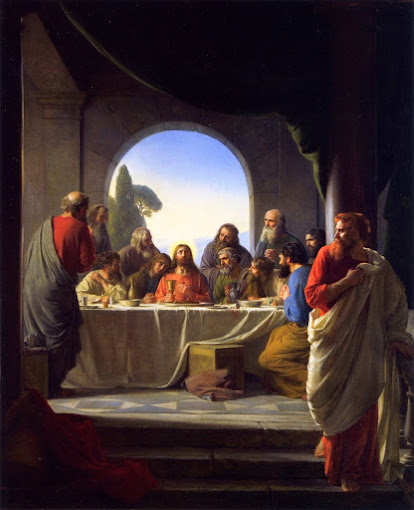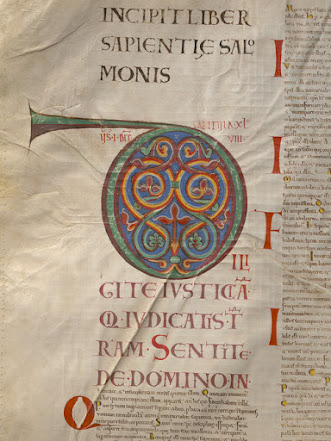“Go into the city to a certain man and tell him,
‘The teacher says, My appointed time draws near;
in your house I shall celebrate the Passover with my disciples.”‘“
Sitting at table with Jesus is meant to be a time of communion. Yet for this to be the case we need to learn to set aside our focus on what we can get from Jesus and focus instead on what he wants to do for us. It is not wrong to desire the gifts that Jesus wants to give (see First Corinthians 14:1). It becomes a problem when the gifts become an end in themselves and therefore a distraction or a detour. It is even possible to receive, possess, and use a blessing such as wealth under the direction of Jesus, receiving it as a gift, and employing it as he directs us. But it is remarkably easy to slip into caring about money for its own sake.
“What are you willing to give me
if I hand him over to you?”
They paid him thirty pieces of silver,
and from that time on he looked for an opportunity to hand him over.
It is possible to begin as a disciple of Jesus but to betray him when we perceive a conflict of interest and choose ourselves instead. The thing to remember is that from our point of view this will sometimes feel like the correct choice, even though we know in our heart that it is not. We are susceptible to the pressure we feel to solve problems ourselves as soon as we can. What we need instead to ensure that we don't betray Jesus is an attitude of patient obedience. It is the same attitude which he had, which he himself came so that we too could have it.
Morning after morning
he opens my ear that I may hear;
And I have not rebelled,
have not turned back.
I gave my back to those who beat me,
my cheeks to those who plucked my beard;
My face I did not shield
from buffets and spitting.
When we are insulted and abused because of our commitment to following Jesus and walking in his ways our flesh will definitely insist there is a conflict of interest and that we should choose it and not Jesus. But the flesh lies. It has lots of suggestions for things we could try but no ultimate solutions to the problems that afflict us and ail our world.
Jesus wants to speak a word of exhortation to us, helping us to realize that the reason he calls us to obedience, to patience, and to putting the Kingdom first, is because he knows that it is precisely this and only this that can make us thrive.
The table of the Lord is meant to be one of thanksgiving. It is one in which all of the many good things we receive are offered back to the Lord, taken up into his own offering of himself. Let us be on guard against the symptoms of a Judas-like spirit in ourselves. Let us be careful that we do not grow apart from others and entertain secret ambitions we dare not share as he did. Simply bringing our own temptations to light can take away their power over us. We can see in Judas the attitude that is inimical to communion. We ourselves ought to be eager for communion.
And let us consider how we may spur one another on toward love and good deeds, not giving up meeting together, as some are in the habit of doing, but encouraging one another—and all the more as you see the Day approaching (see Hebrews 10:24-25).
Jesus knows that we tend to first grow weary and then give in to temptations to self-medicate with gifts instead of relying on the giver. He wants to rouse us from that lethargy with the creative force of his living word.
The Lord GOD has given me
a well-trained tongue,
That I might know how to speak to the weary
a word that will rouse them.
Rouse us, Lord Jesus. Rouse us when we are tempted to try to cash out with the silver and do our own thing. Rouse us when we are tempted to respond to insults and abuse with violence of our own. Rouse us when we refuse to walk with you because we have become so enamored of the gifts themselves that we no longer have the patience to follow the path of the giver.
“See, you lowly ones, and be glad;
you who seek God, may your hearts revive!
For the LORD hears the poor,
and his own who are in bonds he spurns not.”













